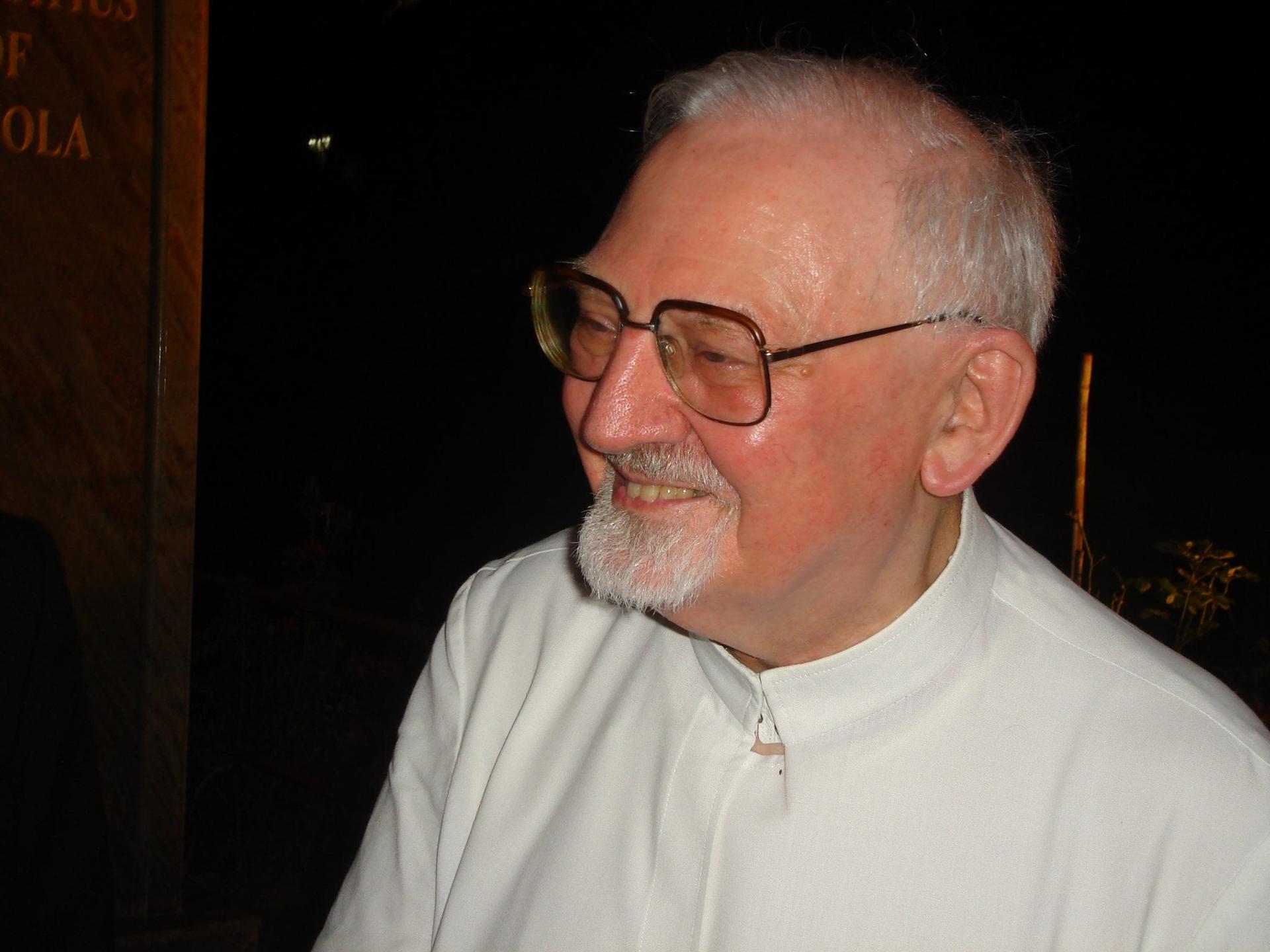On the afternoon of September 13, 1983, the day when he was elected the 29th Superior General of the Society of Jesus, Father Peter Hans Kolvenbach slipped out of the Jesuit headquarters in Rome to take a walk.
An Italian lady saw him leaving the building and asked: “Are you attending the General Congregation of the Jesuits?”
“Yes,” he told her.
“Well,” she said, “I wouldn’t have voted for Father Kolvenbach.”
“Let me assure you,” he replied, “I didn’t.”
She had expected the election of the Italian Father Joseph Pittau, and obviously had no idea with whom she was speaking.
Born in Holland on November 30, 1928, Kolvenbach entered the Society of Jesus in September 1948. In 1961 he was ordained a priest in the Armenian Catholic Church.
He had the Dutch gift for languages. He not only spoke all the major European languages, but was also a specialist in linguistics. He spent years teaching linguistics in Beirut as well as in Paris and the Hague.
During the civil war in Lebanon, a stray rocket hit his room in the Jesuit residence in Beirut and destroyed everything, including his books and papers. Later his companions in Rome noticed how he kept his room more or less empty, and went to the library to look up books and journals.
Two years after coming to Rome in 1981 to serve as rector of the Pontifical Oriental Institute, he attended the 33rd General Congregation and was elected superior general on the first ballot. The Jesuits needed a leader endowed with his undemonstrative holiness, and a practical wisdom honed by international and wartime experience.
Father Pedro Arrupe, the predecessor of Kolvenbach, had suffered a major stroke at Rome’s airport on August 7, 1981, after returning from an exhausting visit to the Philippines and Thailand. Elected superior general in 1965, Arrupe gave himself unstintingly to his work as spiritual leader within the Society of Jesus and beyond.
As his health began to decline, he raised with Pope John Paul II the question of resignation but was told to continue. When he was immobilized, the pope set aside the constitutions of the Society of Jesus and appointed his personal delegate, Father Paolo Dezza (assisted by Pittau, who was summoned from Japan), to run the Society of Jesus.
Dezza did his wise best to secure, as soon as possible, papal approval for a General Congregation (the 33rd), at which Jesuits from around the world could elect a successor to Arrupe.
John Paul II seemed to relate more easily with Kolvenbach, who went on to lead the Society of Jesus for twenty-five years. As an Armenian priest, he was the first Jesuit general to belong to an Eastern rite of the Catholic Church.
Eventually, with the permission of Pope Benedict XVI, he offered his resignation. In January 2008 it was accepted by the 35th General Congregation, which elected Father Adolfo Nicolás as successor to Kolvenbach.
As soon as he could do so, Kolvenbach returned to his beloved Lebanon, and died in Beirut on November 26, 2016.
During twenty-three of Kolvenbach’s years as superior general, I lived across Rome at the Gregorian University. I came to appreciate more and more his quiet sanctity, holy prudence, high intelligence, and, one must add, brilliant sense of humor.
On a personal level, I remain intensely grateful for the unwavering support he gave to Father Jacques Dupuis, my older companion at the Gregorian who, from 1998, was investigated by the Congregation for the Doctrine of the Faith.
Eventually, the CDF issued a “notification” that, without asking for any changes in the text, declared that (unspecified) passages in Dupuis’s Toward a Christian Theology of Religious Pluralism could lead people astray.
On the one occasion when Dupuis met then-Cardinal Joseph Ratzinger, the future Pope Benedict, and other members of the CDF, Kolvenbach spoke up firmly. Serious accusations had been made against Dupuis’s book, but no specific passages were cited to illustrate the alleged errors.
Kolvenbach died on the feast of a young Jesuit seminarian named St. John Berchmans, who also came from the Netherlands. The holiness of Berchmans has often been characterized as that of “a cheerful giver.”
Kolvenbach lived four times as long as the young saint. But, right to the end, he remained, like Berchmans, “a cheerful giver.”
Father Gerald O’Collins S.J. is an Australian Jesuit priest and theologian, currently residing at home in Australia after more than three decades of teaching systematic and fundamental theology at Rome’s Jesuit-run Gregorian University.












